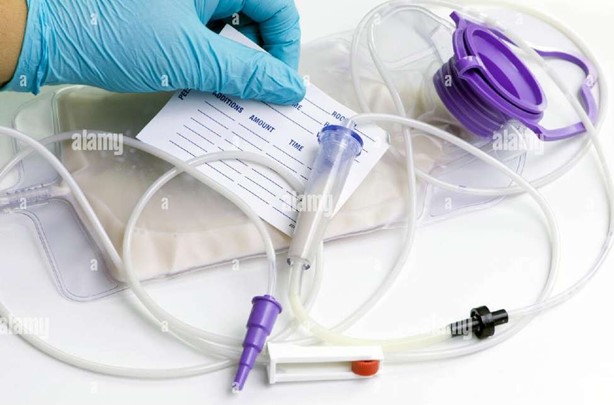A nurse is caring for a client at a follow-up visit who has been taking lithium therapy for bipolar disorder.
Which of the following findings should indicate to the nurse that the client is experiencing lithium toxicity?
Hypoglycemia.
Excess salivation.
Urinary retention.
Dysrhythmia.
The Correct Answer is D
Dysrhythmia is an abnormal heart rhythm that can be a sign of severe lithium toxicity.

Lithium toxicity can occur when a person takes too much lithium, a mood- stabilizing medication used to treat bipolar disorder and major depressive disorder.
Choice A is wrong because hypoglycemia is not a symptom of lithium toxicity. Hypoglycemia is low blood sugar that can cause symptoms such as shakiness, sweating, hunger, and confusion.
Choice B is wrong because excess salivation is not a symptom of lithium toxicity. Excess salivation can be caused by various factors, such as infections, medications, or nerve damage.
Choice C is wrong because urinary retention is not a symptom of lithium toxicity. Urinary retention is the inability to empty the bladder completely, which can cause pain, discomfort, and infection. Lithium toxicity can actually cause increased urine output, not decreased.
Normal ranges for blood lithium levels are 0.6 to 1.2 mEq/L for maintenance therapy and 0.8 to 1.5 mEq/L for acute therapy. Levels above 1.5 mEq/L can cause mild to moderate toxicity, and levels above 2.0 mEq/L can cause severe toxicity. Levels above 3.0 mEq/L are considered a medical emergency.
Nursing Test Bank
Naxlex Comprehensive Predictor Exams
Related Questions
Correct Answer is D
Explanation

This action indicates that the charge nurse should intervene because adding food coloring to the tube feeding is not recommended and can cause adverse effects such as aspiration, diarrhea, and allergic reactions.
Choice A is wrong because checking the volume of the aspirate is a correct action to assess gastric residual volume and prevent complications such as nausea, vomiting, and aspiration.
Choice B is wrong because checking the pH of the aspirate is a correct action to verify the placement of the NG tube and prevent accidental administration of enteral feeding into the lungs.
Choice C is wrong because administering 15 mL of water before administering the feeding is a correct action to flush the NG tube and prevent clogging.
Normal ranges for gastric residual volume are less than 250 mL for adults and less than 5 mL/kg for children. Normal ranges for pH of gastric aspirate are less than 5.5 for adults and less than 4 for children.
Correct Answer is B
Explanation
Encourage the client to visit with someone who has had an amputation.

This strategy can help the client cope with the loss of a body part and learn from the experience of others who have gone through a similar situation.
Choice A is wrong because suggesting that the client wear facility clothing until the prosthesis fitting can delay the client’s acceptance of the body image alteration and increase the risk of infection.
Choice C is wrong because discouraging the client from touching the residual limb for the first week can interfere with the healing process and prevent the client from becoming familiar with the new body part.
Choice D is wrong because reassuring the client that the rehabilitation program is optional can discourage the client from participating in physical therapy and hinder the recovery and adaptation.
Whether you are a student looking to ace your exams or a practicing nurse seeking to enhance your expertise , our nursing education contents will empower you with the confidence and competence to make a difference in the lives of patients and become a respected leader in the healthcare field.
Visit Naxlex, invest in your future and unlock endless possibilities with our unparalleled nursing education contents today
Report Wrong Answer on the Current Question
Do you disagree with the answer? If yes, what is your expected answer? Explain.
Kindly be descriptive with the issue you are facing.
